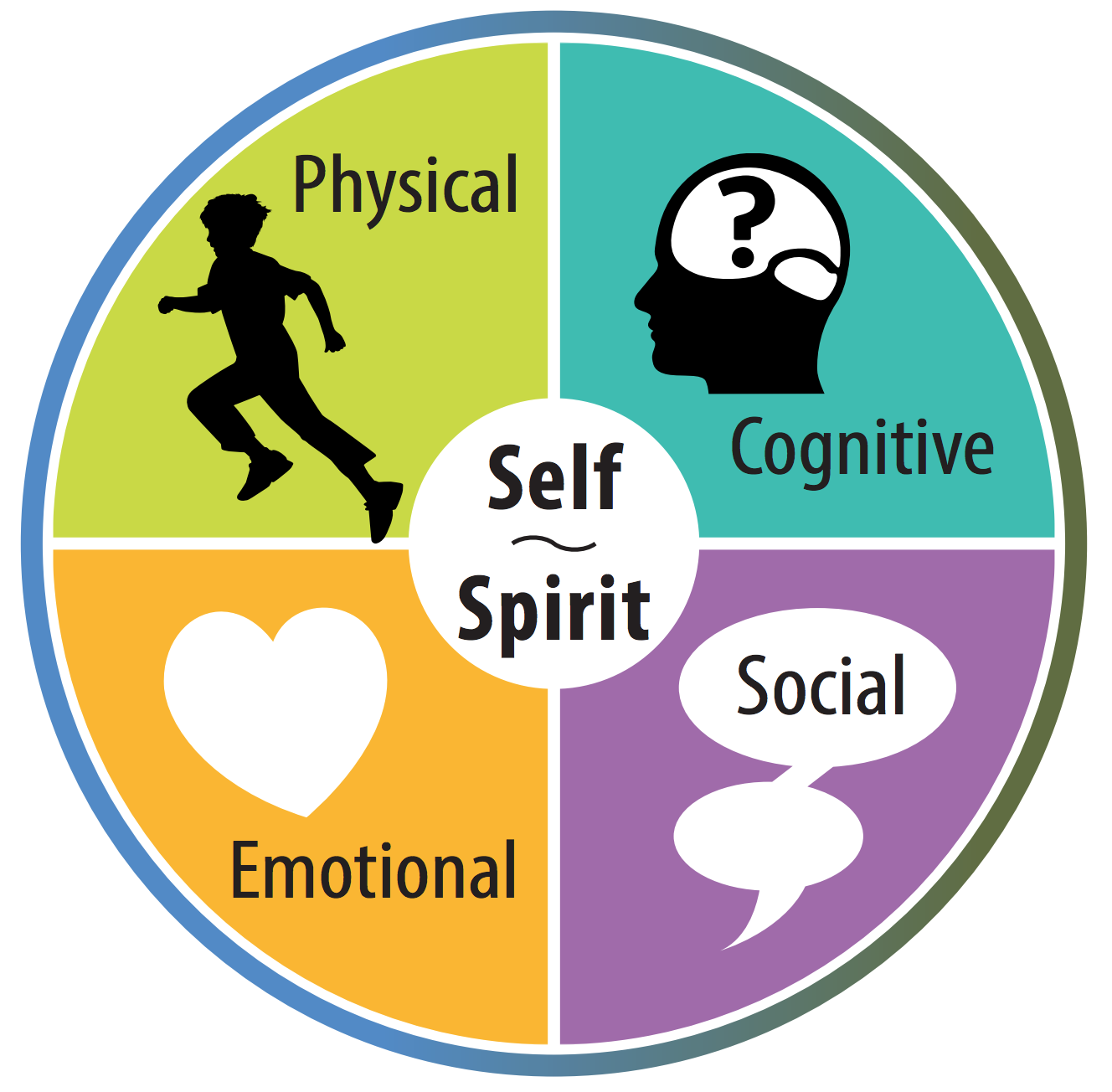Mental Health and Well Being
The Canadian Mental Health Association outlines these key characteristics to help define one’s mental health:
Ability to enjoy life – Can you live in the moment and appreciate the “now?” Are you able to learn from the past and plan for the future without dwelling on things you can’t change or predict?
Resilience – Are you able to bounce back from hard times? Can you manage the stress of a serious life event without losing your optimism and a sense of perspective?
Balance – Are you able to juggle the many aspects of your life? Can you recognize when you might be devoting too much time to one aspect, at the expense of others? Are you able to make changes to restore balance when necessary?
Self-actualization – Do you recognize and develop your strengths so that you can reach your full potential?
Flexibility – Do you feel, and express, a range of emotions? When problems arise, can you change your expectations – of life, others, yourself – to solve the problem and feel better?
“Well-being is a positive sense of self, spirit and belonging that we feel when our cognitive, emotional, social and physical needs are being met. It is supported through equity and respect for our diverse identities and strengths. Well-being in early years and school settings is about helping children and students become resilient, so that they can make positive and healthy choices to support learning and achievement both now and in the future.”
\n 
The Four Domains of Well-Being include:
Cognitive, or the development of abilities and skills such as critical thinking, problem solving, creativity, and the ability to be flexible and innovative.
Emotional, or learning about experiencing emotions, and understanding how to recognize, manage and cope with them.
Social, or the development of self-awareness, including the sense of belonging, collaboration, relationships with others, and communication skills; and
Physical, or the development of the body, impacted by physical activity, sleep patterns, healthy eating, and healthy life choices.
\n Think About it…
- When you think about the four domains of well-being, where in your life do you see these in balance, or out of balance?
- In your own life, what impact does one domain have on the other, in terms of balance?
- How might you work towards balancing the four domains in your own life?
Things to Consider: Mental Illness
Who is affected by Mental Disorders?
80% indirectly affected by a Mental Disorder
20% directly affected by a Mental Disorder
Causes
- Genetics
- Biology
- Personality Factors
- Environmental Factors
What is Mental Illness
Abnormal Behaviour
Behaviour that is out of the ordinary and does not conform to the behaviour of most people.
Behaviour is considered abnormal if it is characterised by one of the following:
- Irrational
- Results in personal suffering: persistent unhappiness and inability to function in society
- Results in interpersonal maladjustment: behaviour that harms other people
Mental Illness and Youth
- 10-20% of Canadian youth are affected by a mental illness or disorder
- 5% of male youth and 12% of female youth, age 12 to 19, have experienced a major depressive episode
- 3.2 million teens in Canada are at risk for developing depression
- 80% of people who are affected by depression will get better once the symptoms are recognized and treated
- Canada's youth suicide rate is the third highest in the industrialized world.
- Suicide is among the leading causes of death in 15-24 year old Canadians; 4,000 people die prematurely each year by suicide.
- Schizophrenia is youth's greatest disabler as it strikes most often in the 16 to 30 year age group, affecting an estimated one person in 100.
- Surpassed only by injuries, mental disorders in youth are ranked as the second highest hospital care expenditure in Canada.
- In Canada, only 1 out of 5 children who need mental health services receive them.